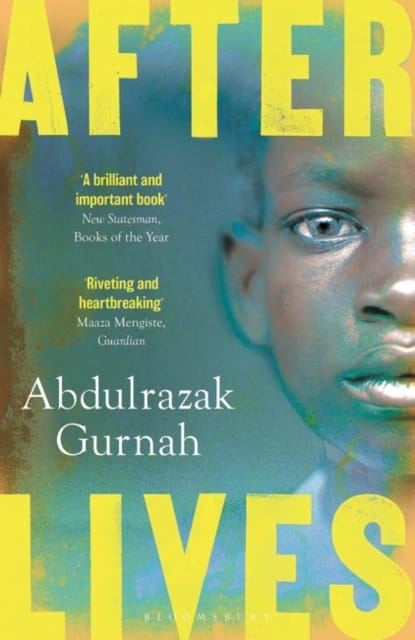
“Afterlives” by Abdulrazak Gurnah
Originally it was the setting of this novel of East Africa, under the influence of German colonialism, that tempted me to read this book by an established author, and I recall, many years ago, favourably reading his earlier work “Paradise”. Strangely my choice of this author was endorsed in October with him being awarded the Nobel Prize for Literature.
We meet the main characters, Ilyas, who returns to the seaside town of his childhood after years away working on a German owned coffee plantation, where at least he received some education. He settles in, makes friends and discovers his younger sister, Afiya, who he rescues from his cruel uncle and brings back to the town to live with him. Then as WW1 breaks out he volunteers to join the German Askari Schutztruppe, returning his sister, unawares, to ever more hardship. Luckily during his time in the town he has befriended Khalifa, and after a plea for help Khalifa brings Afiya back to live with him and his wife Asha.
The parts of the story that are located in this nameless coastal town follow the lives of Khalifa, and Asha, and Afiya as she grows up. Also of Kahlifa’s boss Biashara, Asha’s uncle, but when he dies, Kahlifa ends up working for his son, a less enjoyable experience. Their lives, and experiences of work are well textured.
Into this setting eventually we meet Hamza another Askari volunteer, and his back story very clearly identifies the cruelties the Germans imposed within their colonies. There is an absorbing section of this novel where we follow Hamza through military training, his placement as an officer’s servant who is determined to teach him German; their relationship, and the cruelty of other officers towards the troops. Hamza meets good people during his hard years of service, and these lead him eventually to settle beside the sea, and to enter a strong friendship with Khalifa and his family.
In many respects Hamza is the fullest character within this cast, really none have an easy life and we follow them through the decades even witnessing from a distance the Italian invasion of Ethiopia so eloquently recounted by Maaza Mengiste in her novel “The Shadow King” [please see separate review on-line].
Gurnah provides us with a long look through this window into East African 20th century history as those regions escape from colonial restrictions and find their feet of Independence, all narrated to provide a satisfying read. Historically an interesting and fulfilling novel, but greatly enhanced by a really good storyline told over the decades; very readable.
